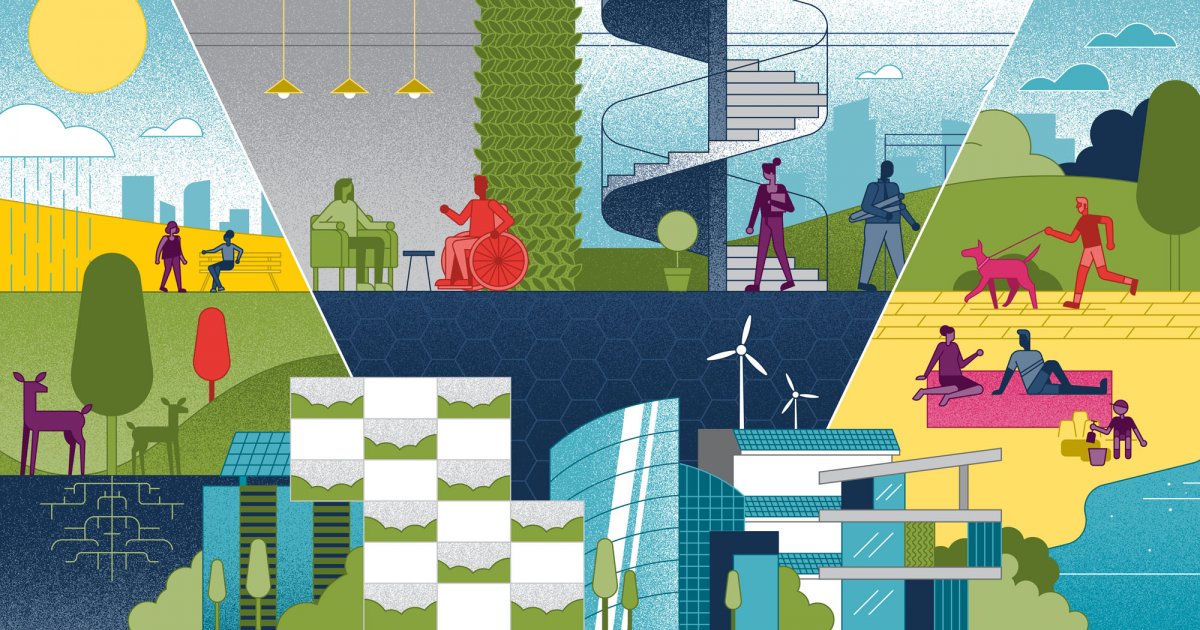The search for a smart and sustainable future
Friday, 05/11/2021, 09:15 GMT+7

By Evi Politi, R&D Manager, Danaos Shipping
The maritime sector is experiencing radical change from two directions; the drive towards decarbonisation and the growth of digitisation. Both are set to radically change the management and operation of the marine industry.
Decarbonization
The first step towards decarbonisation is to study how a vessel’s overall operation affects its performance. This needs to consider a range of issues including the ship’s engine, its fuel and on-board energy management. It is also important to look at hull cleanliness to reduce drag. In fact, any part of a vessel’s operation that could improve its overall efficiency could translate into a CO₂ reduction. In addition to the above effort to optimize vessel’s operational parameters, the adoption of design measures to reduce friction or ripple resistance, where applicable, could provide efficiency gains and thus improve CO₂ footprint.
These are all areas that could ameliorate the performance of existing vessel performance and thereby improve its carbon intensity indicator (CII) rating. But there’s more that can be done. Amending trade routes, based on speed, can also contribute, although this is a decision that will need to be jointly made by vessel owners and their clients.
For new builds there are strategic decision that need to be made at the planning stage, including the all-important choice of fuel type. For example, both ammonia and hydrogen are carbon-free and are already being viewed as potential long-term solutions. However, both have drawbacks – despite on-going field trials, the technology is still under development and there are unresolved issues around supply chain infrastructure and regulatory control.
Biofuels could become a mid-term solution for existing vessels. However, there are considerations around availability and there are still regulatory gaps. Moreover, due to their variety of origin, the IMO hasn’t yet determined a carbon footprint factor for biofuels and it remains to be decided if or how a lifecycle assessment will be reflected in their evaluation.
We believe that for the next decade existing fuels will still have a strong presence in the shipping sector. This is especially the case for containerships whose owners, who do not pay for fuel, are extremely reluctant to undertake huge, risky investments, until the technological and regulatory gaps are covered and there are significant developments in bunkering infrastructure.
However, we estimate that by 2035 the relevant technological advancement will have been made and as a result an investment on a zero-carbon fuels, such as ammonia and hydrogen, will become more attractive.
Digitalization
The adoption of digitalisation, and the incorporation of automatic services and controls supported by advances in AI, is a valuable tool that can help companies effectively addressing a range of operational challenges.
It is therefore essential to assess the types of investment necessary to create a smart operational analytics platform capable of upgrading a fleet’s performance monitoring and control, ensuring full transparency, fast reaction and protection against undesirable performance penalties.
Next generation connectivity provides a valuable tool in the modernisation and optimisation of company operations and processes, helping to effectively address regulatory challenges. In order to maximise these benefits, companies need to invest in staff training and support the creation of new a new workplace culture that is focused on preserving competitiveness.
Traditional ways of operating, based on the long-term experience, can be significantly enhanced by the power of AI and next gen analytics. Together, they can supply valuable insights into day-to-day operations, offer real-time problem detection and deliver crucial problem solving.
Your Comments
Other news
Trong phần 1 và phần 2 của series, chúng ta đã cùng nhau phân tích sâu về những quy định của IMO 2020 và các thách thức kỹ thuật không thể xem nhẹ khi vận hành ...
Trong phần 1 của series, chúng ta đã cùng nhau tìm hiểu những quy định cốt lõi của IMO 2020. Việc chuyển đổi sang sử dụng Nhiên liệu có hàm lượng lưu huỳnh ...
Kể từ ngày 1 tháng 1 năm 2020, quy định của Tổ chức Hàng hải Quốc tế (IMO) về việc giới hạn hàm lượng lưu huỳnh trong nhiên liệu hàng hải đã chính ...
Another big success in lowering carbon
The marine industry is facing growing demands to develop more sustainable ways of operating. As a result, many established practices are being called into question, including the bulk delivery of ...
Mobilgard™ 540 AC is a new premium 40BN marine cylinder oil developed by ExxonMobil
ExxonMobil hosted an online discussion in association with The Motorship in early October that brought together senior figures from across the marine industry to discuss the challenge of ...
The International Maritime Organization (IMO) adopted its initial levels of ambition for a quantitative fall in marine industry greenhouse gas emissions (GHG)
International Maritime Organization’s (IMO) 2020 sulphur cap has resulted in some much-publicised changes to marine fuel formulations
The maritime industry is undergoing seismic shifts of mounting complexity – a process set in motion by the International Maritime Organization’s (IMO) 2020 sulphur cap on marine fuels.







__imo5.png)
__BYn_sao_cYa_Health_1.png)
__IMO_2020_cover.png)
__facility_management_2.jpg)
__2272977.jpg)
__marine-navigational-officer-chief-mate-navigation-watch-ship-vessel_461973-2206.jpg)
__istockphoto-1323550608-612x612.jpg)
__Untitled.jpg)
__Oil-Analysis-2-640x480.jpg)
__Future_of_marine_lubricant.jpg)
